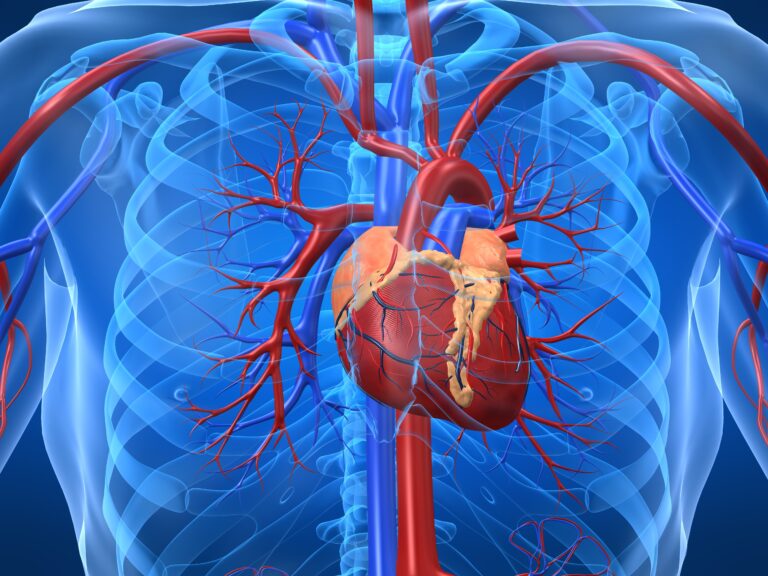We treat the heart like it is a machine gone wrong. As if a perfectly functioning piece of equipment decided one day that it was no longer going to work right.
The circulatory system is one of the busiest systems in the body. It is responsible for carrying oxygen to every tissue and cell in the body. It is the determiner of tissue nutrition (what goes in the cells) and detoxification (the vital waste elimination of every cell). When the circulatory system is hampered, it becomes the primary etiology for all degenerative diseases. When speaking of circulatory health, we include blood quality – nutrient density, essential enzymes, hormones, and other factors, including the proper viscosity, and vascular integrity.
The heart is the brain of the circulatory system, which pumps an average of 100,000 times per day. Quite a lot of mechanical and chemical needs must be met for this alone to happen in a healthy way.
If there is a nutritional deficiency in the coronary arteries, it could lead to blockage and cell failure (heart attack or stroke). If the deficiency lies in the electrical system of the heart, it could lead to irregular heartbeats (arrhythmias). If the deficiency is in the musculature of the heart, it could lead to impaired pumping/strength, shortness of breath or edema.
The WHO estimates more than 12 million people die annually worldwide. In the U.S. 10 Million are diagnosed with Coronary Artery Disease, 1.5 million have a heart attack annually, 30 million suffer high BP, 9 million arrhythmias, 3 million strokes, and many more have had bypass surgery, stents, and other “rescue” procedures. These are staggering numbers, especially when a mere 100 years ago, cardiovascular disease was a rarity.
Why would this precisely designed, perfectly functioning machine go haywire? If any other piece of machinery stopped working, we would do everything we could to find out why. Did it run out of fuel? Was it not greased properly? Did dirt get into the engine? All of these could also be causes of heart disease.
Our heart needs fuel to operate properly. It needs Vitamins A, B, C, D and E, minerals and amino acids. There are more than likely other nutrients yet to be discovered.
The heart needs to be greased. Cholesterol is that grease. Cholesterol is protective. It’s the healing serum used when tissue is damaged, weakened or degenerating. If your cholesterol is high, you should be asking why? Cholesterol performs several functions in the body: it is the foundational nutrient for making/synthesizing hormones, (not just sex hormones, but hormones that stop pain and inflammation, make you happy and feel content, stop food cravings, balance blood sugar, provide energy, regulate water, heal tissue, support immune health, build and repair the gut lining, regulate every gland and organ in the body, help you sleep well, regulate weight and many other functions), it is needed to respond to damage, to make brain cells, the outer coating of cells is made out of cholesterol, it is needed to make bile to emulsify fats, and allows the body to make and use Vitamin D.
If the vascular system is “dirty” – full of rancid cholesterol, triglycerides, waste metabolites, sugar, and garbage elements from a horrific food supply, it can cause things to run amok, akin to using dirty gasoline in your car. So much can be done to prevent and remedy heart disease. It is a shame that we suffer the way we do today when the same principles to keeping any machine functioning properly apply to the cardiovascular system as well.
©2012 Holly A. Carling, O.M.D., L.Ac., Ph.D.







